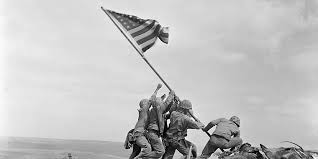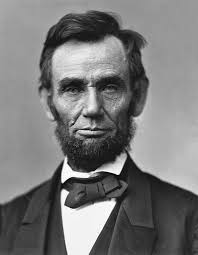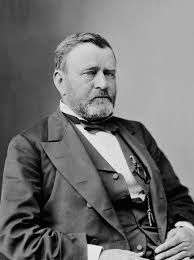Introduction
The American Civil War, fought from 1861 to 1865, remains one of the most pivotal events in United States history. It was a brutal conflict that not only divided a nation but also altered the course of its future. At the heart of the war were two main issues: slavery and states’ rights. The war ultimately led to the abolition of slavery and reshaped the federal structure of the United States. But its impact went beyond that, influencing everything from politics to social structures to the very identity of America. This article will explore the causes, key events, and legacy of the American Civil War, providing you with a comprehensive understanding of this critical chapter in American history.
What Led to the Civil War?
Slavery: The Root Cause of the Conflict

Also Read The Radical History of Anarchism: From Revolution to Social Movement
The primary cause of the American Civil War was slavery. The institution of slavery, which had been entrenched in the southern states for centuries, became a point of contention between the North and the South. While the North had largely abolished slavery, it remained an essential part of the Southern economy, particularly in agriculture. Cotton, tobacco, and other crops were produced using slave labor, and the South’s economy was heavily reliant on it.
The abolitionist movement in the North, which sought to end slavery, clashed with the Southern desire to maintain the status quo. By the time Abraham Lincoln was elected president in 1860, tensions between the two regions were at a boiling point. Lincoln’s stance on stopping the spread of slavery into new territories was seen as a direct threat to the South’s economic and social system, ultimately leading to secession.
States’ Rights: The Struggle for Power

Also Read The Secret Life of Fraternities: Hazing, Racism, and Exclusive Brotherhoods
The issue of states’ rights was also central to the conflict. The South believed that states had the right to govern themselves and make their own decisions about issues like slavery without interference from the federal government. The North, on the other hand, viewed the Union as a single, indivisible entity, with the federal government having ultimate authority.
This disagreement over the balance of power between the federal government and the states was particularly evident when Southern states began seceding from the Union. The secession was framed as a defense of their rights, while the North saw it as an unlawful rebellion that threatened the very fabric of the nation.
Key Events of the Civil War
The Battle of Fort Sumter: The War Begins
The first shots of the Civil War were fired at Fort Sumter, located in Charleston, South Carolina, on April 12, 1861. Confederate forces, under the command of Brigadier General P.G.T. Beauregard, attacked the federal garrison stationed there after Major Robert Anderson refused to surrender the fort. This attack marked the beginning of open warfare between the North (Union) and the South (Confederacy).
The Emancipation Proclamation: A Turning Point
On January 1, 1863, President Abraham Lincoln issued the Emancipation Proclamation, which declared that all slaves in Confederate-held territory were to be freed. While the proclamation did not immediately free all slaves, it shifted the focus of the war from merely preserving the Union to ending slavery. It also allowed for the recruitment of African American soldiers into the Union Army, further bolstering the North’s military strength.
The Emancipation Proclamation was a moral and political victory for the Union and gave the war a new sense of purpose. It also signaled to European nations, particularly Britain and France, that the Union was committed to ending slavery, making it less likely that they would recognize the Confederacy as a legitimate nation.
The Battle of Gettysburg: Turning the Tide
One of the most significant battles of the Civil War was the Battle of Gettysburg, fought from July 1 to July 3, 1863, in Pennsylvania. It was the largest battle ever fought in North America, with over 50,000 soldiers killed, wounded, or missing. The battle marked a turning point in the war, as the Union Army, commanded by General George G. Meade, defeated the Confederate Army under General Robert E. Lee.
The defeat at Gettysburg forced Lee to retreat back to the South, and the Confederate Army would never again mount a significant offensive into Northern territory. The Union victory, combined with the fall of Vicksburg on July 4, 1863, which gave the Union control of the Mississippi River, significantly weakened the Confederacy and bolstered Northern morale.
The Surrender at Appomattox: The End of the War
After years of intense fighting, General Robert E. Lee, commander of the Confederate Army, was forced to surrender to Union General Ulysses S. Grant at Appomattox Court House, Virginia, on April 9, 1865. The terms of the surrender were generous, with Grant allowing Confederate soldiers to keep their horses and return home without fear of retribution.
Lee’s surrender effectively ended the Civil War, though some fighting continued in the months that followed. The Confederacy had been defeated, and the Union was preserved.
Major Figures of the Civil War
Abraham Lincoln: The Great Emancipator

Abraham Lincoln is perhaps the most iconic figure of the Civil War. As president, he navigated the nation through its darkest days, maintaining the Union and ultimately ending slavery. Lincoln’s leadership, political acumen, and dedication to preserving the Union were crucial to the Northern victory.
His Gettysburg Address, delivered on November 19, 1863, remains one of the most famous speeches in American history. In it, Lincoln honored the fallen soldiers and reaffirmed the Union’s commitment to equality and democracy.
Robert E. Lee: The Confederate General
General Robert E. Lee is remembered as one of the greatest military leaders in American history. Lee’s tactical brilliance was evident in battles such as the Seven Days Battles, Fredericksburg, and Chancellorsville. However, his aggressive strategy ultimately led to his downfall. His decision to invade the North in 1863 led to the defeat at Gettysburg, which proved to be a decisive turning point in the war.
Though a defender of his homeland, Lee’s legacy remains controversial due to his role in fighting to maintain a system that relied on slavery.
Ulysses S. Grant: The Union’s Victorious General

Ulysses S. Grant’s leadership was instrumental in the Union’s victory. Known for his aggressive tactics and determination, Grant rose through the ranks to become General-in-Chief of the Union Army. His victory at the Battle of Vicksburg and subsequent campaigns in the South brought critical momentum to the Union cause.
Grant’s success as a military commander eventually led to his election as the 18th president of the United States in 1868.
The Aftermath of the Civil War
The Abolition of Slavery
One of the most significant outcomes of the Civil War was the abolition of slavery. In 1865, the 13th Amendment to the U.S. Constitution was ratified, permanently outlawing slavery in the United States. This monumental change marked the end of an era in which millions of African Americans were enslaved, and it set the stage for future civil rights movements.
Reconstruction: Rebuilding the Nation
Following the Civil War, the U.S. entered a period known as Reconstruction, which lasted from 1865 to 1877. The main goal of Reconstruction was to reintegrate the Southern states into the Union and rebuild the South’s economy. However, this period was fraught with challenges, including political infighting, economic difficulties, and resistance to the new social order.
While some progress was made, including the passage of the 14th and 15th Amendments, which granted citizenship and voting rights to African Americans, Reconstruction ultimately ended in failure. Many of the gains made during this period were rolled back in the following decades, as Southern states implemented Jim Crow laws that enforced racial segregation.
The Legacy of the Civil War

The legacy of the Civil War is still felt today. It fundamentally changed the United States, shaping the nation’s political, social, and economic structures. The war’s impact on race relations, federalism, and national identity continues to be a subject of debate and discussion.
Conclusion: A Nation Transformed
The American Civil War was a defining event in the history of the United States. It was a war that tested the very ideals upon which the nation was founded. Though it was a costly and devastating conflict, it ultimately led to the abolition of slavery and set the stage for a more unified nation. The war also underscored the power of the federal government, setting a precedent for future struggles over states’ rights. The consequences of the Civil War are still visible today in the ongoing discussions around race, equality, and the role of government in American life.
As we reflect on the Civil War, we are reminded of the sacrifices made by countless individuals and the ways in which history has shaped the present. Understanding this period in American history is crucial to understanding the complexities of the nation today.
FAQs About the American Civil War
1. What was the main cause of the Civil War?
The main cause of the Civil War was the disagreement over slavery, particularly its expansion into new territories. The South wanted to preserve slavery, while the North sought its abolition.
2. When did the Civil War end?
The Civil War officially ended on April 9, 1865, with the surrender of General Robert E. Lee at Appomattox Court House, Virginia.
3. Who were the key leaders in the Civil War?
The key leaders included Abraham Lincoln (Union President), Ulysses S. Grant (Union General), Robert E. Lee (Confederate General), and Jefferson Davis (President of the Confederacy).
4. What was the Emancipation Proclamation?
The Emancipation Proclamation, issued by President Lincoln on January 1, 1863,
declared the freedom of all slaves in Confederate-held territories. It marked a turning point in the war by making the abolition of slavery a key goal of the Union effort.
5. How did the Civil War impact African Americans?
The Civil War led to the abolition of slavery and gave African Americans new rights, including citizenship and the right to vote. However, full equality was not achieved until the Civil Rights Movement of the 20th century.



